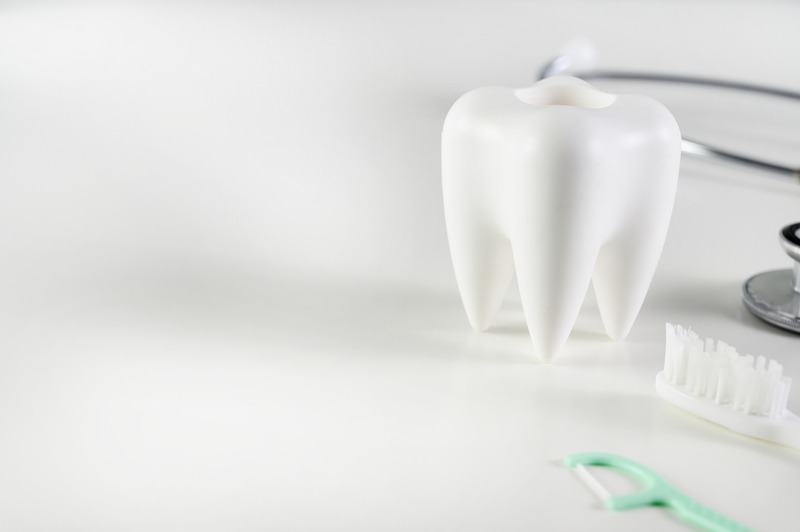
How Does Diet Influence Oral Health?
Considering oral health, many focus on dental hygiene products, overlooking the significant role diet plays. Food choices influence the condition of teeth and gums, impacting everything from cavity risk to gum disease. Understanding which foods harm and which benefit oral health can lead to a vibrant and healthier smile. This article explores how diet affects oral health, providing practical advice for those conscious of their dietary impacts and those undergoing orthodontic treatment.
The Connection Between Diet and Oral Health
Diet has a profound impact on the health of teeth and gums. Foods and beverages consumed can affect pH levels in the mouth, potentially leading to decay or fortification. Sugars and starches, when broken down by mouth bacteria, turn into acids that erode tooth enamel, increasing the chances of cavities. Conversely, a diet rich in beneficial nutrients helps in strengthening teeth and gums.
Acidic consumables contribute to tooth erosion, with beverages like sodas and certain sports drinks posing significant risks. Snack frequency also matters as frequent snacking creates more opportunities for bacteria to produce decay-causing acids. By moderating the intake of such foods, individuals can preserve their enamel and overall oral health.
Foods Harmful to Oral Health
-
Sugary indulgences provide fuel for cavity-causing bacteria.
-
Starchy foods cling to teeth, forming a breeding ground for bacteria.
-
Acidic foods and beverages, such as citrus fruits, can weaken enamel.
-
Sticky snacks adhere to teeth, leading to prolonged acid exposure.
-
Alcoholic drinks dry the mouth, reducing protective saliva.
Instead of completely avoiding these foods, it’s essential to consume them in moderation, recognizing their potential harm to oral health. Limiting their intake, especially between meals, can greatly benefit dental well-being.
Beneficial Foods for Strengthening Teeth
-
Dairy items like cheese and yogurt provide calcium that fortifies enamel.
-
Crisp fruits and vegetables promote saliva, which naturally cleanses the mouth.
-
Nuts and seeds offer nutrients that reinforce gum health.
-
Leafy greens are packed with vitamins essential for dental health.
-
Teas can contain natural compounds that deter harmful bacterial growth.
Incorporating these foods in daily meals aids in maintaining a healthy mouth. Apart from providing vital minerals and nutrients, these foods can also increase saliva production, offering a natural defense against bacteria.
Key Nutrients Influencing Oral Health
Specific vitamins and minerals play pivotal roles in oral health maintenance. Calcium and phosphorus are essential for the formation and protection of tooth enamel. Vitamin D enhances calcium absorption, strengthening both teeth and bones. Vitamin C is necessary for healthy gums, helping to prevent bleeding and inflammation. Including foods high in these nutrients can significantly support oral health goals.
Additionally, Vitamin A is important for maintaining gum linings. A deficiency in these vitamins can lead to various oral health issues, underlining the necessity of a balanced diet for maintaining a healthy smile.
Importance of Hydration in Oral Care
Water is often overlooked in oral health maintenance but plays a crucial role. Drinking water helps to wash away food debris and neutralizes acids produced by bacteria. Staying hydrated fosters saliva production, a natural shield against tooth decay. Consuming fluoridated water can also bolster teeth, providing an additional layer of protection.
While sugary and caffeinated drinks might be enticing, opting for water offers numerous benefits for oral health. It’s a simple yet vital step in supporting daily dental care.
Orthodontic Considerations in Diet
Individuals with braces must pay special attention to their diets to maintain oral health. Braces create extra nooks where food particles can get trapped, promoting decay and gum issues. Dietary choices are crucial for achieving a healthy smile after orthodontic treatment.
Those evaluating teen braces options should focus on foods that do not damage brackets or wires. Soft fruits, dairy products, and well-cooked vegetables are excellent choices for braces wearers, ensuring they receive the necessary nutrition while protecting orthodontic appliances.
Orthodontic Care and Food Restrictions
-
Avoid hard items like nuts and candies that may harm braces.
-
Stay away from sticky foods that can cling to braces.
-
Refrain from consuming crunchy snacks like popcorn that can dislodge brackets.
-
Moderate sugary intake to prevent increased decay risks, as braces can exacerbate issues.
-
Limit chewy foods that might pull or damage wires.
Adhering to these restrictions preserves braces’ integrity and promotes oral health. Mindful food choices, especially when considering personalized braces, help achieve successful orthodontic outcomes that account for individual needs, ensuring effective care and the preservation of oral health throughout the orthodontic journey.
Making informed choices regarding dietary habits aligns well with the desired orthodontic outcomes.
Tailored Orthodontic Solutions
Choosing self-ligating braces or other personalized orthodontic options facilitates a more comfortable and efficient treatment experience. These tailored solutions offer improved adjustability and result in less frequent orthodontic visits if applicable to one’s specific treatment plan. Patients can concurrently manage dietary choices to support optimal oral health.
Closing Remarks
Diet significantly influences oral health, playing a key role in the development of cavities and the strength of teeth and gums. By identifying and incorporating foods that support oral well-being, individuals can nurture a healthy smile. Whether undergoing orthodontic treatment or focusing on preventive care, a balanced diet with essential nutrients contributes to maintaining strong teeth and healthy gums.
Making smart food choices fosters a holistic approach to oral health that extends to overall well-being. Embracing this information ensures that our dietary habits align with our aspirations for a radiant smile and robust oral health.
